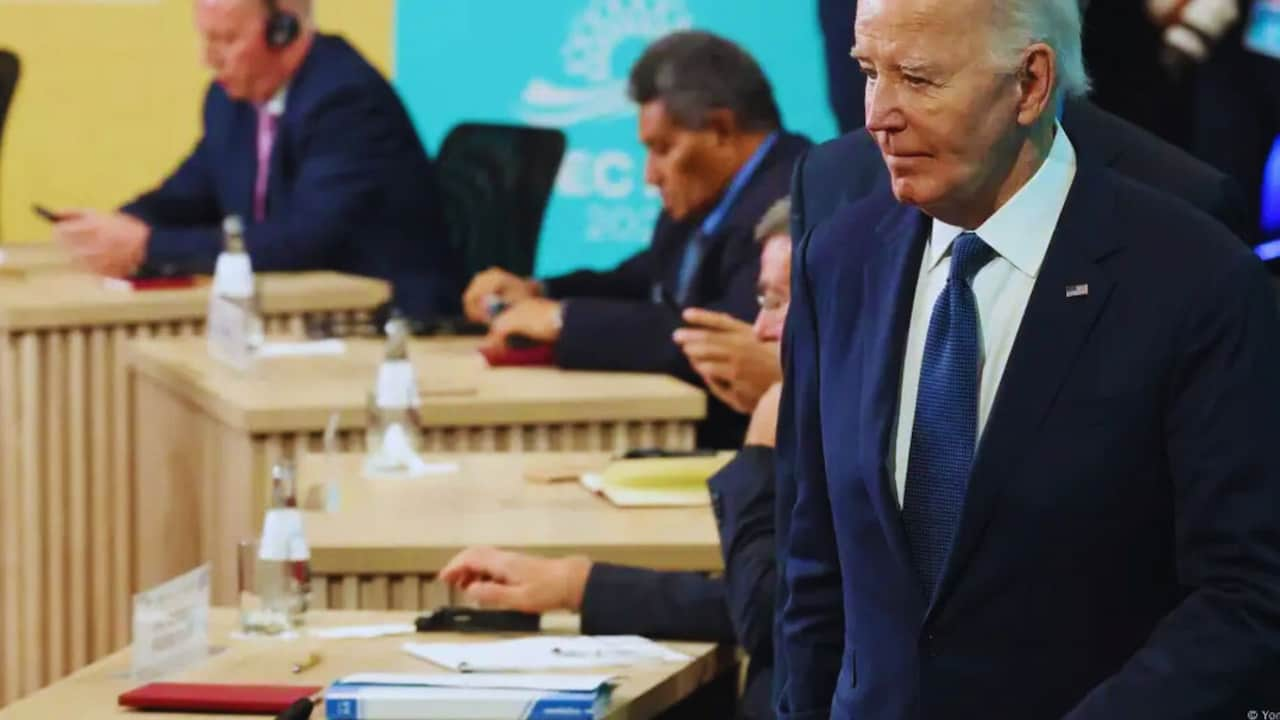Historic Trilateral Meeting Marks End of an Era as Biden Addresses North Korea-Russia Alliance
President Joe Biden delivered a powerful message of unity and concern during what he called his “last trilateral meeting” with South Korean and Japanese leaders at the Asia-Pacific Economic Cooperation (APEC) summit in Lima, Peru. The meeting comes amid growing worries about North Korea’s military partnership with Russia and its implications for global security.
“We have now reached a moment of significant political change,” Biden declared, addressing the press alongside South Korean President Yoon Suk Yeol and Japanese Prime Minister Shigeru Ishiba. The statement carries extra weight as Biden prepares to hand over the presidency to Donald Trump in January.
North Korea’s military support for Russia raises alarms
Intelligence reports reveal that North Korea has sent up to 12,000 troops to help Russian forces in the Kursk border region, where Ukrainian troops had previously made gains. This military cooperation has sparked serious concerns among US allies in the Asia-Pacific region.
“The challenging security environment within and outside the region once again reminds us of the importance of our trilateral cooperation,” President Yoon stated, using diplomatic language to address what US officials call a “dangerous and destabilizing” partnership between North Korea and Russia.
A Legacy of Partnership
The meeting builds on groundwork laid at the historic 2023 Camp David summit, where the three nations strengthened their security and economic ties. Biden’s administration has worked hard to help Japan and South Korea move past their historical differences to face common challenges.
Prime Minister Ishiba highlighted recent joint military exercises as proof of their growing partnership. These drills focused on improving their collective ability to defend against missile threats and conduct anti-submarine warfare—skills that are increasingly vital as North Korea continues its weapons testing program.
Looking Ahead: Uncertain Times
The timing of this meeting is crucial, as North Korea has ramped up its missile testing program in the lead-up to the recent US election. White House National Security Adviser Jake Sullivan cautioned that historically, North Korea has escalated its provocative actions during presidential transitions.
“I do not think we can count on a period of quiet with the DPRK,” Sullivan cautioned, using North Korea’s official name.
Biden’s Final Global Stage
The APEC summit marks one of Biden’s last major international appearances as president. In addition to the trilateral meeting, Biden has a one-on-one meeting with Chinese President Xi Jinping and will be present at the G20 meeting in Brazil next week.
White House officials emphasize that these final diplomatic engagements will be focused on:
- Climate issues
- Global infrastructure
- Counter-narcotics efforts
- Maintaining support for Ukraine
- Negotiating peace in the Middle East
The Path Forward
Despite the upcoming change in US leadership, Biden expressed optimism about the future of the trilateral partnership: “I think it’s built to last. That’s my hope and expectation.”
Both Yoon and Ishiba have already reached out to President-elect Trump, working to ensure their countries’ relationships with the US remain strong during the transition period. However, questions remain about how Trump’s “America First” approach might affect these crucial partnerships in an increasingly complex global landscape.
As this chapter in US-Asia relations comes to a close, the strength of these diplomatic bonds will face new tests in the months ahead. The successful coordination between these three democratic powers could prove crucial in addressing the challenges posed by North Korea’s military activities and its growing alliance with Russia.
